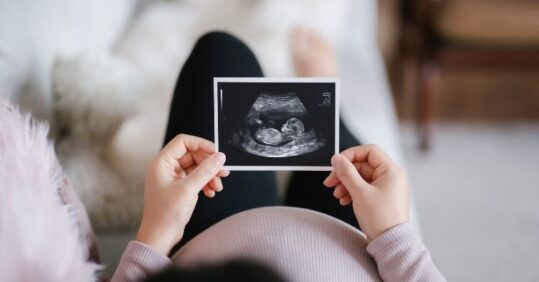Risk of premature birth from smoking while pregnant more than double previous estimates

Women who smoke during pregnancy are 2.6 times more likely to give birth prematurely than non-smokers, almost double previous estimates.
In a new study, researchers at the University of Cambridge showed that smoking during pregnancy is linked to premature birth and low birth weights. Babies born to mothers who smoked throughout their pregnancy were four times more likely to be small for their gestational age, which can lead to serious complications, including breathing difficulties and infections.
The findings are published in the International Journal of Epidemiology, and researchers hope they will encourage more pregnant women to seek help from smoking cessation services available within the NHS.
Related Article: Ex-smokers feel positive health changes within two weeks, finds study
Currently, the NHS recommends that all pregnant women stop smoking for the duration of their pregnancy because of the risk of complications for the baby. Smoking increases the risk of fetal growth restrictions, premature birth and low birth weight. It has also been linked to a decreased risk of developing preeclampsia during pregnancy. Previous studies have, however, been self-reported and often subjective.
Pregnant women are also advised to reduce their caffeine intake during their pregnancy. High levels of caffeine during pregnancy are associated with low birth rates and possible restricted fetal growth. The researchers set up an objective study to examine how smoking and high levels of caffeine can affect the developing fetus.
By measuring metabolites in the blood, which are created as chemical byproducts of tobacco and caffeine as the body processes them, the researchers were able to establish objectively the impact of both chemicals. Working in the Rosie Hospital, part of the Cambridge University Hospitals NHS Foundation Trust, the researchers recruited more than 4,200 women who were part of the Pregnancy Outcome Prediction (POP) study at the hospital between 2008 and 2012. The team analysed blood samples from a subset of the population four times during their pregnancies.
On exposure to cigarette smoke, levels of the metabolite cotinine will be elevated in the blood, urine and saliva; for caffeine analysis, the metabolite paraxanthine was measured.
Related Article: Smokers more likely to quit using e-cigarettes or medicines
Of the 914 women who smoked, 78.6 per cent were shown to have no exposure to cotinine during pregnancy. 11.7 per cent had some exposure, and 9.7 per cent had consistent exposure throughout their pregnancy. Compared to non-smokers, the women who were consistently exposed to smoke were 2.6 times more likely to experience spontaneous premature birth, more than double the previous estimate of 1.27 from a meta-analysis study.
Consistent smokers were also 4.1 times more likely to experience fetal growth restriction. Babies of smokers were, on average, 387 grams lighter than those of non-smokers at birth, more than ten per cent smaller than the weight of the average newborn. A low birth rate is associated with an increased risk of developmental problems and poorer health in later life.
The researchers could not find any evidence to suggest that smoking was associated with a lower risk of preeclampsia, and they also found little association with caffeine intake and adverse outcomes at birth.
Related Article: Mothers with poor mental health at greater risk of premature birth
Professor Gordon Smith, from the University of Cambridge, said: ‘We’ve known for a long time that smoking during pregnancy is not good for the baby, but our study shows that it’s potentially much worse than previously thought. We hope this knowledge will help encourage pregnant mums and women planning pregnancy to access smoking-cessation services.’

See how our symptom tool can help you make better sense of patient presentations
Click here to search a symptom

